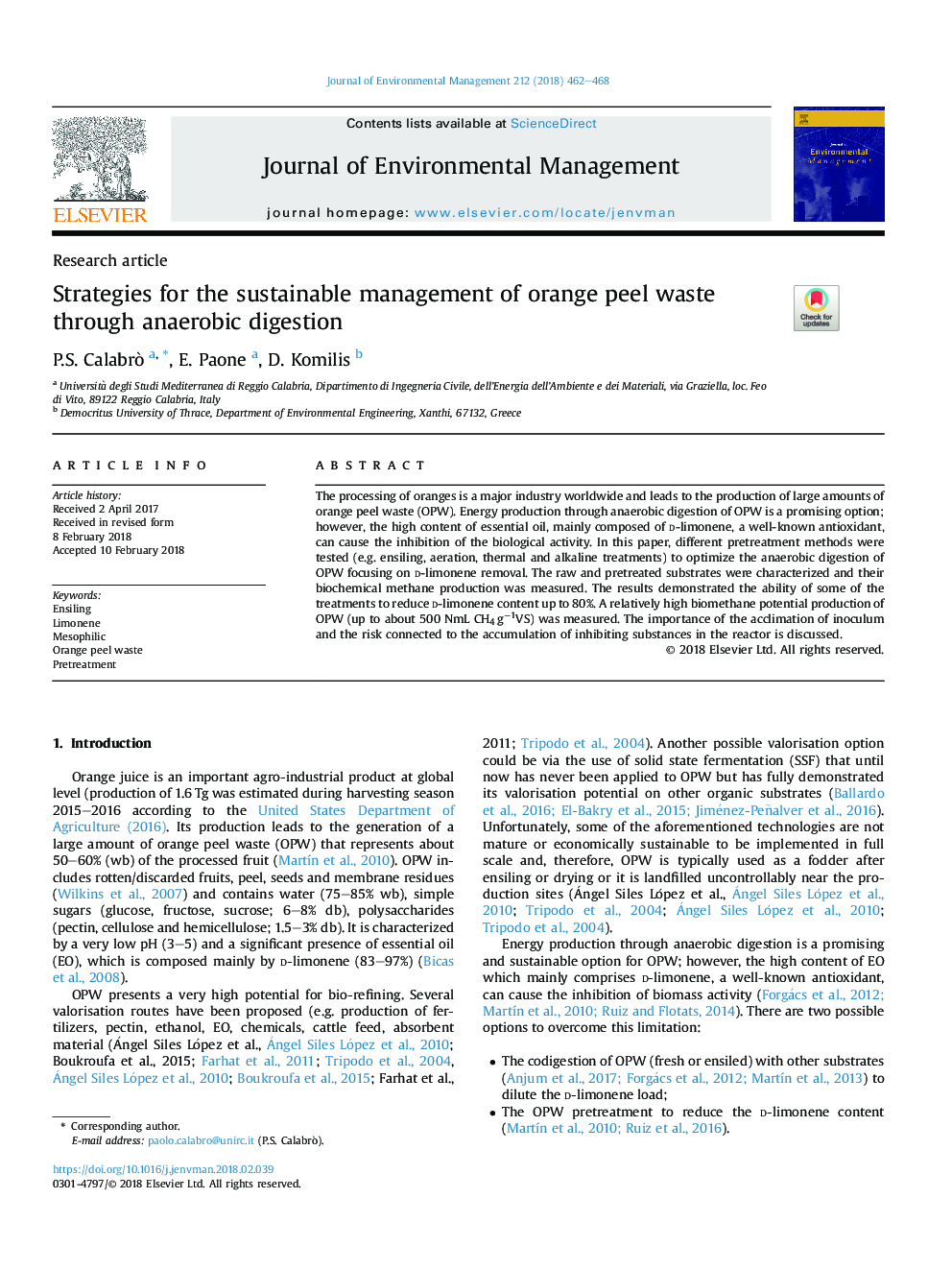| Article ID | Journal | Published Year | Pages | File Type |
|---|---|---|---|---|
| 7478355 | Journal of Environmental Management | 2018 | 7 Pages |
Abstract
The processing of oranges is a major industry worldwide and leads to the production of large amounts of orange peel waste (OPW). Energy production through anaerobic digestion of OPW is a promising option; however, the high content of essential oil, mainly composed of d-limonene, a well-known antioxidant, can cause the inhibition of the biological activity. In this paper, different pretreatment methods were tested (e.g. ensiling, aeration, thermal and alkaline treatments) to optimize the anaerobic digestion of OPW focusing on d-limonene removal. The raw and pretreated substrates were characterized and their biochemical methane production was measured. The results demonstrated the ability of some of the treatments to reduce d-limonene content up to 80%. A relatively high biomethane potential production of OPW (up to about 500 NmL CH4â¯gâ1VS) was measured. The importance of the acclimation of inoculum and the risk connected to the accumulation of inhibiting substances in the reactor is discussed.
Related Topics
Physical Sciences and Engineering
Energy
Renewable Energy, Sustainability and the Environment
Authors
P.S. Calabrò, E. Paone, D. Komilis,
